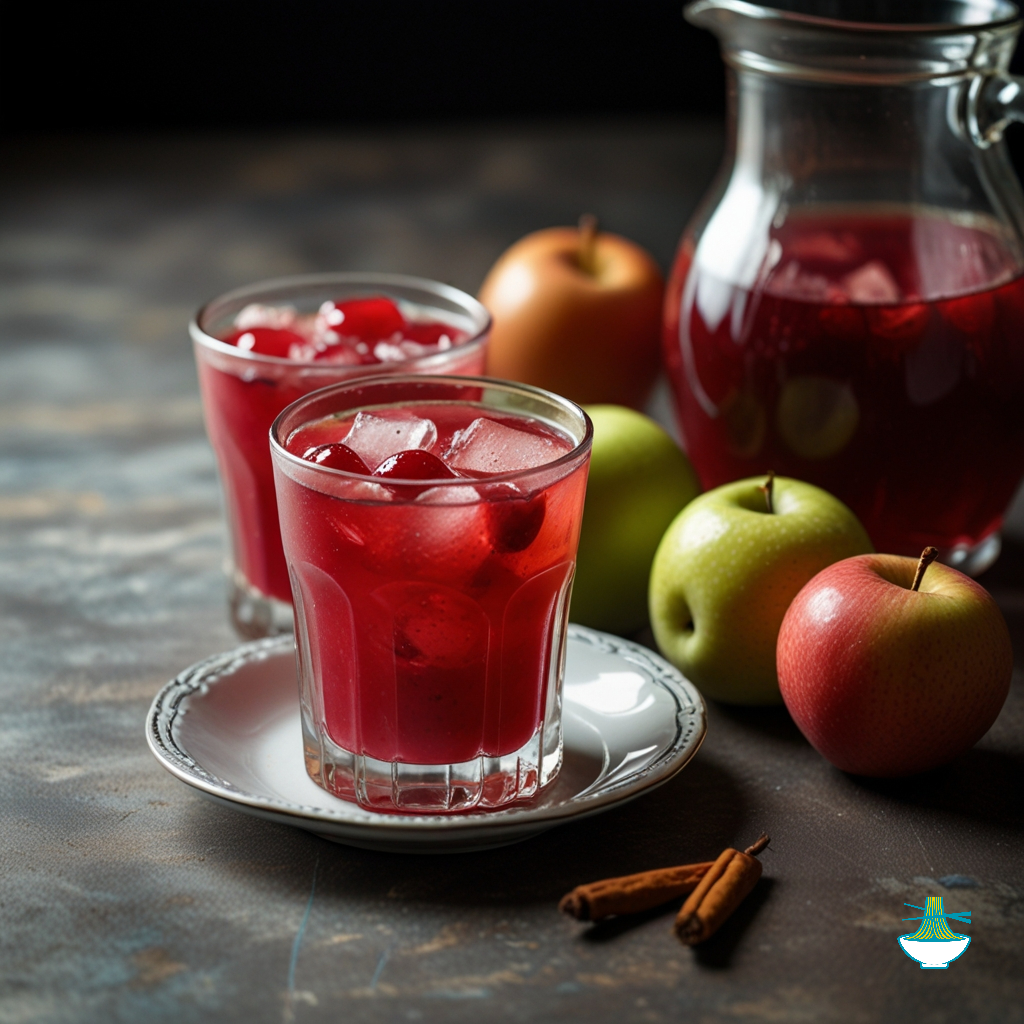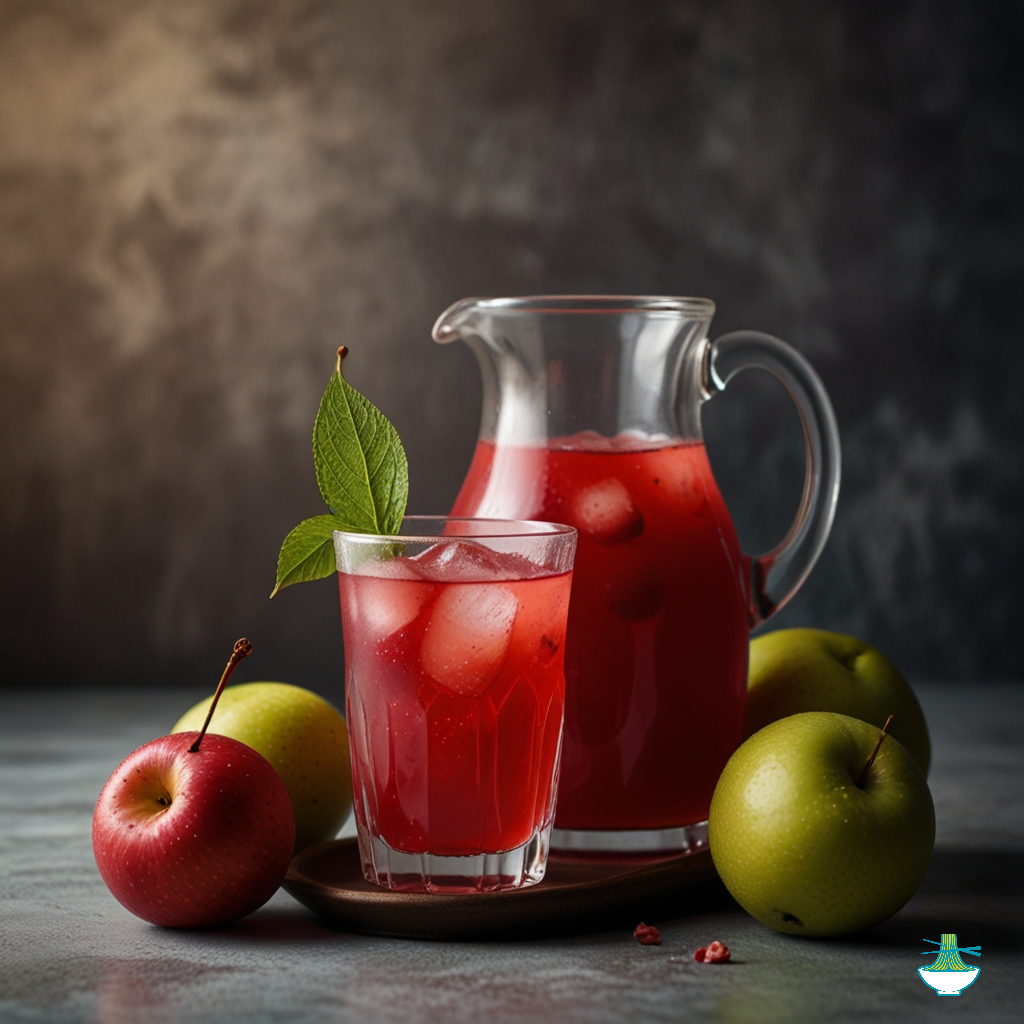Kompot, a beloved beverage in Uzbekistan, is a fruit-based drink renowned for its refreshing taste. This traditional recipe involves boiling a mix of fruits like apples, pears, and berries with sugar and water, creating a sweet and tangy concoction. Once cooled, it's served chilled, making it a perfect choice for hot days. With roots tracing back through Central Asian culinary traditions, kompot has evolved into a cherished drink enjoyed across various cultures for its simplicity and delicious flavor.
Ingredients:
- Assorted fruits (such as apples, pears, berries)
- Sugar
- Water
Method:
1. Wash and chop the fruits into small pieces, removing any seeds or cores.
2. In a large pot, combine the chopped fruits with water and sugar. The amount of sugar can vary based on personal preference and the sweetness of the fruits.
3. Bring the mixture to a boil over medium-high heat.
4. Once boiling, reduce the heat to low and let the kompot simmer for about 20-30 minutes, or until the fruits are soft and the flavors have infused.
5. Remove the pot from the heat and allow the kompot to cool to room temperature.
6. Once cooled, strain the kompot to remove any fruit solids.
7. Transfer the strained liquid to a pitcher or container and refrigerate until chilled.
8. Serve the chilled kompot in glasses with ice cubes, if desired. Enjoy this refreshing beverage on a hot day!

Nutrition Value:
1. Assorted fruits (such as apples, pears, berries):
- Calories: Generally low in calories, providing energy without excessive caloric intake.
- Carbohydrates: Rich in natural sugars, providing a quick source of energy. Also contain dietary fiber, aiding in digestion and promoting satiety.
- Protein: Generally low in protein, but some varieties like berries may offer trace amounts.
- Fat: Mostly negligible fat content, contributing little to overall fat intake.
- Sodium: Naturally low in sodium, making them suitable for low-sodium diets.
- Cholesterol: Cholesterol-free, promoting heart health.
- Vitamins: High in vitamins, especially vitamin C and various B vitamins, supporting immune function, metabolism, and overall health.
- Minerals: Rich in minerals such as potassium, which helps regulate blood pressure, and manganese, aiding in bone health and metabolism.
2. Sugar:
- Calories: High in calories, providing a quick source of energy.
- Carbohydrates: Pure sugar, consisting entirely of carbohydrates.
- Protein: No protein content.
- Fat: No fat content.
- Sodium: Usually sodium-free.
- Cholesterol: Cholesterol-free.
- Vitamins: Typically devoid of vitamins.
- Minerals: Typically devoid of minerals.
- Nutritional Benefit: Provides quick energy but lacks essential nutrients. Excessive consumption can contribute to weight gain and other health issues like dental problems and insulin resistance.
3. Water:
- Calories: Calorie-free.
- Carbohydrates: No carbohydrates.
- Protein: No protein.
- Fat: No fat.
- Sodium: Sodium-free.
- Cholesterol: Cholesterol-free.
- Vitamins: No significant vitamin content.
- Minerals: May contain trace minerals depending on its source.
- Nutritional Benefit: Essential for hydration and proper bodily function. Helps regulate body temperature, transport nutrients, and remove waste.


Comments